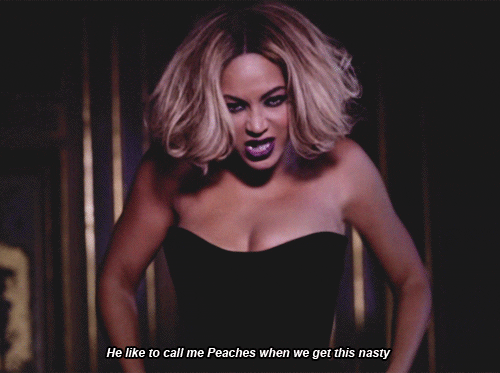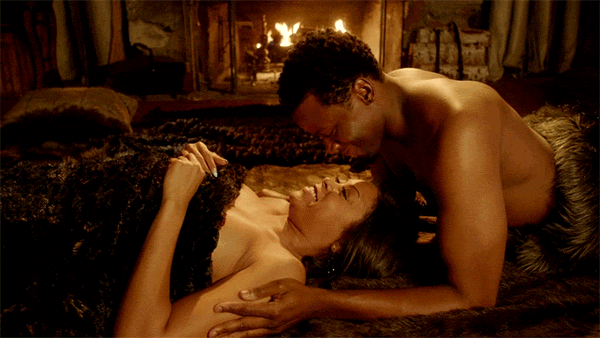My self-esteem took a hard hit when my ex-partner expressed to me mid-argument that he didn’t have sex with me often because there was a smell. This was one of the lowest moments in our relationship and, I thought, for me. However, the only thing that made me feel worse was him expressing it again midway through sex. Though the first strike for sure makes him an asshole, I realized the second time that this wasn’t his intent…to be an asshole. And, yet, I felt worse than when he had announced it during our heated argument.
What I came to realize is that so many people are unaware of how to communicate in regards to sex and especially when it’s an uncomfortable truth. This actually shouldn’t come as much of a surprise seeing as though honest and healthy communication, in general, is really hard to come by amongst humans. Everyone always says, “Please, tell me if my breath stinks,” and I’m sure the same goes for other bodily dysfunctions. I think we all would want to know rather than be held in the dark for this discovery to be made amongst multiple people before the news is finally broken to you.
And, I too, am a part of that camp! I would like to know, truly. Especially because upon my ex telling me, I realized I wasn’t paranoid when I thought this might be the reason other partners had ghosted me. (It turns out, it was a super strain of a yeast infection and bacterial vaginosis, which took me so long to discover due to a major run around from multiple testing sites including being told there was nothing off or being misdiagnosed with sexually transmitted infections.)
Of course, this certainly doesn’t mean hearing uncomfortable truths will be easy. So, wherein lies the problem with how my partner expressed his concerns? The first one is glaringly obvious but the second was a part of my initial epiphany regarding communication: people think it’s okay to communicate this type of discomfort during sex and it’s simply not. Sex, sans hookup culture (now inherently toxic and dismissive), is supposed to be one of the safest spaces for you and your partner.
As it is the space where you will be most vulnerable–bearing all of your potential insecurities and humanness. There is a time and a place for everything, it’s important that we learn when that time is the bedroom and when it is not.
When to Talk About Sex & Intimacy Problems With Your Partner
Communicate anything uncomfortable after sex, during aftercare, or soon after the event so you are able to provide your partner with detail while making them aware. All too often, people bring up their grievances weeks later, and by that time they may not be able to recount all the details. Just because you don’t bring it up during sex doesn’t mean you should avoid doing it while it’s fresh.
In the instance with my partner, he had noticed the smell for months but hadn’t said anything, so the time for that discussion would’ve ideally been prior to him initiating sex. For example, if this is your first time experiencing something like body odor, perhaps you can alternatively and (again) gently shut down the sex and have this discussion then.
When I say "don’t communicate things during sex," that is not synonymous with "do not communicate inappropriate behaviors during sex." If it crosses boundaries and makes you feel unsafe – THAT should be communicated during sex. As previously stated, sex is a vulnerable space and should be one where both parties feel seen, felt, heard, and most of all, safe. According to SHAPE, sexual boundaries can look like this:
- Having a safe word or phrase that effectively communicates to your partner that a sexual boundary has been crossed. This can be as simple as "Stop," or "Let's take a break."
- Getting tested for STIs and STDs before and after introducing a new sexual partner;
- Deciding when or how you'd prefer to send nudes or if you want to send them at all;
- Choosing when and how you'd like to partake in oral sex with a new and/or untested partner;
- Being specific about the types of sex you want to have;
- Communicating the kinds of positions you want to do and the kinds you rather not do;
- Having limits around how many fingers you'd like during fingering and/or your preference for where those fingers go;
- Expressing enthusiastic interest in some types of stimulation versus others (i.e. wanting butt play but not anal sex);
- Declining to engage in acts that feel demeaning or that bring back trauma for you (i.e. rough sex, spanking, certain trigger words, etc.)
How to Communicate Your Sexual Needs During Sex
While there is a time and a place to ideally talk about uncomfortable topics with your partner, this doesn’t mean shying away from communicating what you need during sex when possible. This is tricky since the line is so thin between uncomfortable topics like body odor and uncomfortable topics like your partner licking the wrong spot or needing them to adjust in order to feel more pleasure. In this case, discernment is key. Tone is also key. It’s more than okay to redirect your partner in regards to your pleasure via touch or verbal cues.
If, however, it’s something that isn’t being translated properly through gentle signaling, you might want to hold off on having this conversation during sex. If you need to stop sex because you're uncomfortable, don't be afraid to advocate for yourself and your needs. Save the sex and intimacy problems talk for a time where the conversation can be had delicately and from a space of openness and understanding.
If communicating uncomfortable topics feels impossible, I would explore the type of foundation that was created for communication going into the relationship. Question what feels most difficult about responding and possibly consider alternatives such as writing a letter expressing concerns. But, know, that it is critical to the survival of your relationship that you express even the most uncomfortable of circumstances.
Let’s make things inbox official! Sign up for the xoNecole newsletter for daily love, wellness, career, and exclusive content delivered straight to your inbox.
Featured image by Getty Images
- Intimacy Anorexia In Relationships - xoNecole: Women's Interest ... ›
- Intimacy Anorexia In Relationships - xoNecole: Women's Interest, Love, Wellness, Beauty ›





























